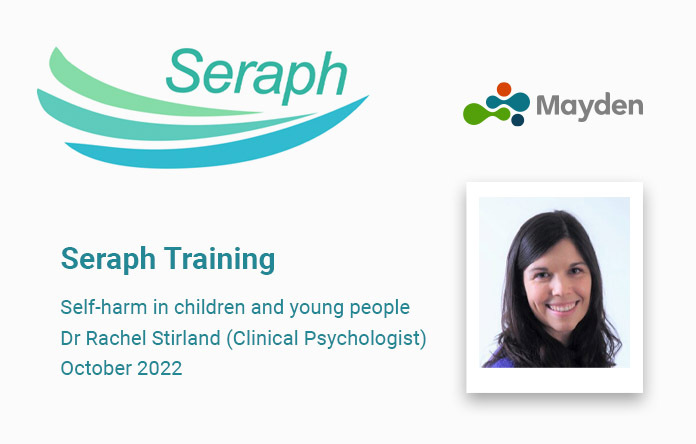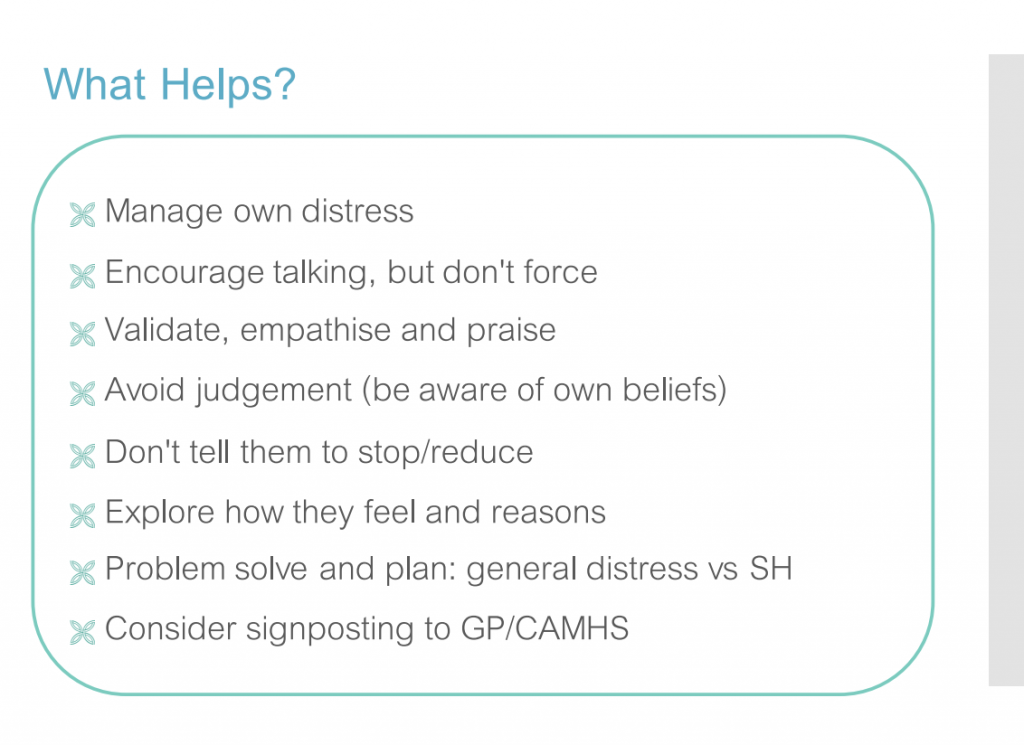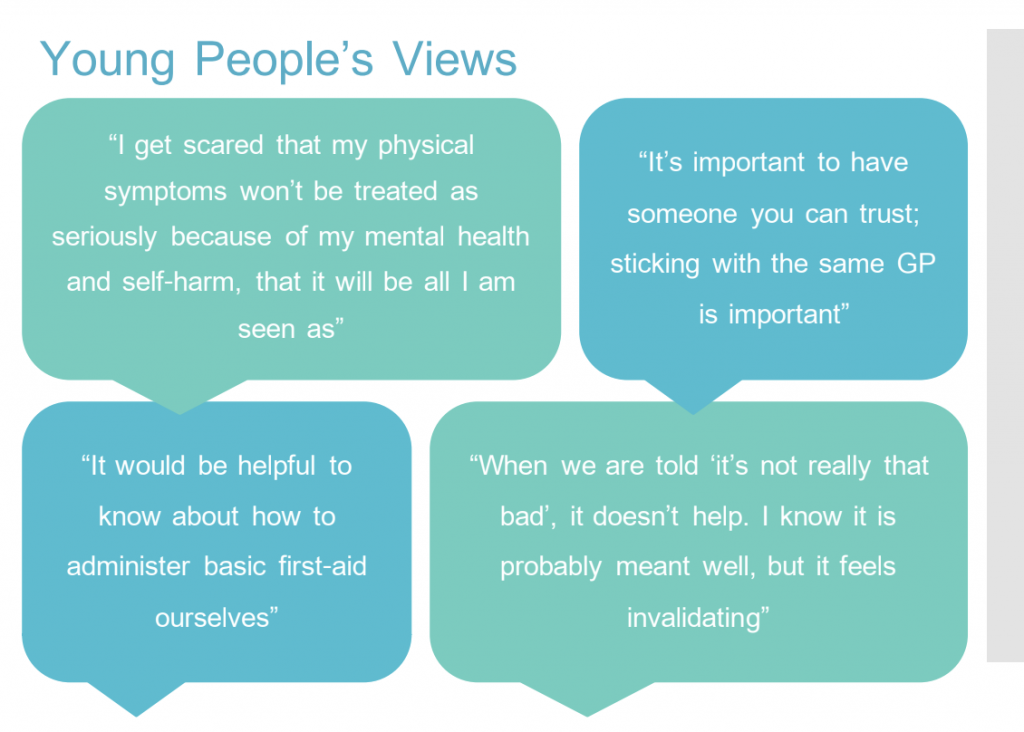
We recently welcomed Dr Rachel Stirland, clinical psychologist, as guest speaker for the sixth in our series of ‘sharing and learning’ virtual events for Mental Health Support Teams (MHSTs) and those working with children and young people (CYP) in education settings.
Read on for Dr Rachel’s advice, a video from her talk on dispelling common myths, and links to helpful resources.
What did the webinar cover?
Dr Rachel specialises in working with a variety of age groups that struggle with complex mental health difficulties and particularly those that self harm. We had an incredible turn out from services all over the country who came together to learn from Dr Rachel’s extensive experience, specifically in the subject matter of self harm in children and young people. She covered techniques that practitioners can apply to help those in their care to manage self harm, she dispelled some common myths surrounding this topic, provided feedback from the young people she works with and also shared resources that CYP services like yours can use to help support the children and young people in your care.
What was Dr. Rachel’s advice?
Firstly, Dr Rachel highlighted that her advice is informed by current research evidence and that she evolves it as new research emerges. She outlined that there are a few key points to be aware of when considering what can be helpful in supporting children and young people if they are self harming. As mental health practitioners, it is important to find ways to manage your own distress or fear. Although easier said than done, it’s essential that your emotions don’t reflect back onto or escalate the child’s distress.

Dr Rachel suggests encouraging the child to talk about their feelings or about their self harm as much as possible while validating and empathising with what they tell you. It’s important, however, not to force them to talk should they not feel comfortable. It’s also crucial to avoid judgement and to be mindful not to put your own beliefs or views on to the child or young person. For example, it might feel like the right thing to do to encourage them to stop or to reduce their self harm, but it’s important to understand that this could lead to the child feeling alienated, rather than supported.
Helping to problem solve and plan
Dr Rachel advises helping the child or young person to problem solve and plan. For example, if they are telling you that they hate self harming and they want to stop, then it’s entirely appropriate to look at ways to support them to do that. If, on the other hand, they don’t see their self harm as a problem and they’re struggling with other aspects of their mental health, then it might be helpful to sign post them to the right support. Coming up with a plan, even if it’s just to set up another session the following week, can be a really useful and structured way to end the conversation.

Furthermore, gathering feedback from the children and young people in your care can go a long way to helping them on their road to recovery. Dr Rachel outlined that, sometimes, the young person simply needs to know that they are heard, no matter the level of severity of their self harm or distress.
What are some common myths surrounding self harm in young people?
What resources are available?
Dr Rachel sign posted a number of resources and apps that are currently available to mental health practitioners working with children and young people.
- Calm Harm and DistrACT are two free apps to help people minimise or manage their self harm.
- Other free resources available include Harmless, a charity offering self harm and suicide prevention services, a free suicide awareness training course, guidance from NICE and a publication by NHS England on the mental health of children and young people in England.
- You can also watch Dr Dominique Thompson’s TEDx talk on self harm – “Understanding Why” and what young people wish we knew.
How can I streamline my mental health service for children and young people?
You can join us at our webinar on 25th October, 2:00 – 2:45pm for services that are interested in learning about common challenges we hear from Mental Health Support Teams (MHSTs), particularly around managing care pathways and data collection, and how iaptus CYP supports them.
We’ve put together a guide for MHSTs on selecting a digital care record system for your team.
Discover top tips from Northpoint Wellbeing, a charity in Yorkshire, on providing support in schools and how they are using iaptus CYP to manage their services in schools and colleges.
Follow East Lancashire Child and Adolescent Services (ELCAS), run by East Lancashire Hospitals NHS Trust, on their journey to best practice, routinely recording outcomes and reporting data nationally.

